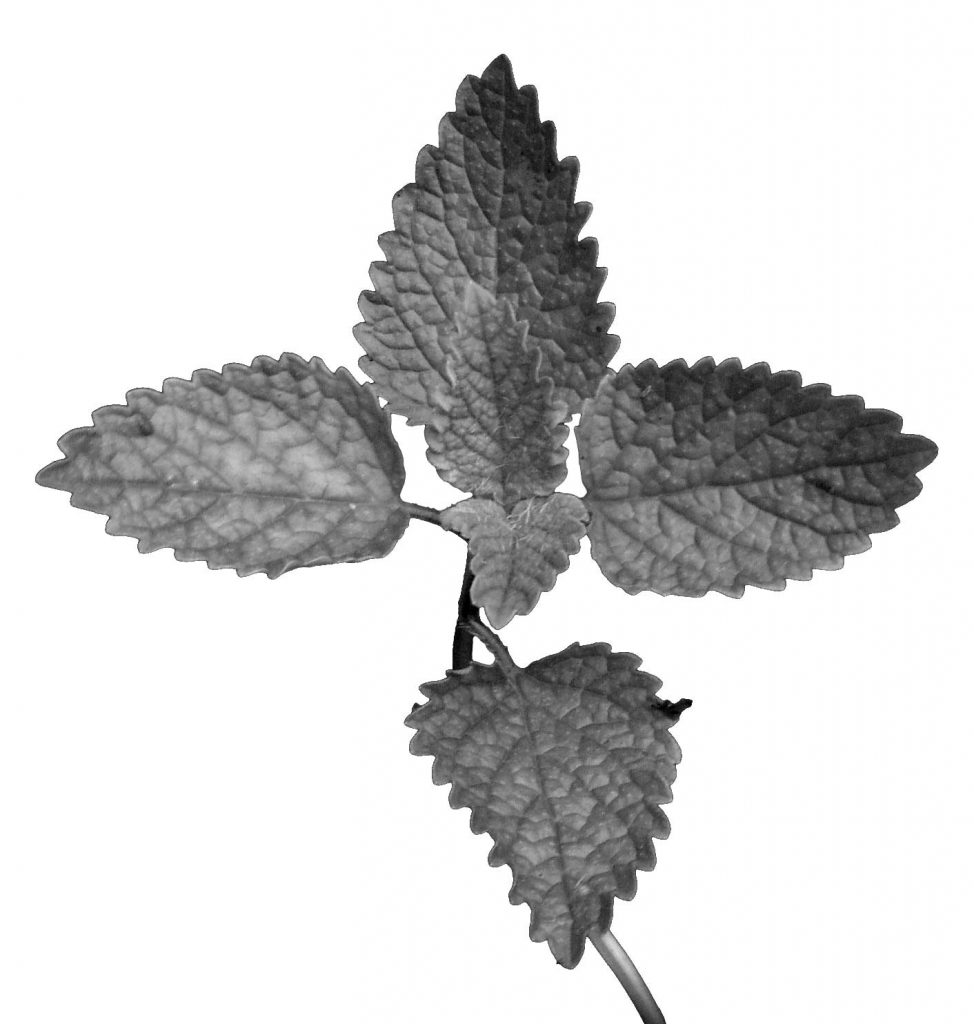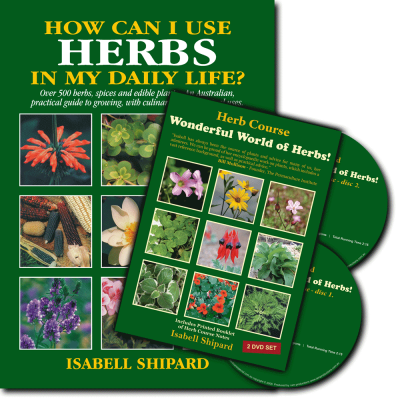Bee Balm, Melissa, Sweet Balm, Cure-all, Melissa officinalis F. Lamiaceae
… … omitted text, please see How can I use HERBS in my daily life? for full text.
Medicinal Uses
… … omitted text, please see How can I use HERBS in my daily life? for full text.
Paracelsus recommended balm for its ability to make the heart merry, and revive spirits. Culpepper said it would help digestion, open obstructions of the brain, and with its purging quality expel melancholy spirits. Recent research findings indicate that balm has strong antidepressant properties, and can assist when dyspepsia is associated with anxiety or depression.

The oil of lemon balm has a gently sedating effect, which helps to disperse tension and stress reactions, and lighten the load of depression. Many years ago I had an elderly friend ring me asking what herb might help her husband who was very depressed. He had been sick for a while, had no interest in life and would not even get out of his pyjamas in the morning. I suggested lemon balm tea. So they both drank lemon balm tea and very soon Melba reported back to me, that husband, Herb, had a new lease on life and was getting dressed each morning. Maybe, all Herb needed was a herb to give him back his spark!
In 1696 ‘The London Dispensary’, reported that ‘balm in wine, taken every morning, would renew youth, strengthen the brain, relieve languishing nature and prevent baldness’. The wine was also taken for headaches, nervous disorders, to reduce fevers, prevent nightmares, as a tonic, and a remedy for impotence. The Arabs revered balm for its healing, soothing, calming powers; and as a remedy for heart palpitations, eye ailments, nervousness, prevent miscarriages, to strengthen the memory, and prolong the life of man. They believed it also gave intelligence to all animals that fed on it. Several handfuls were fed to animals morning and night.
For anyone who drinks lemon balm regularly, they will know the calming, relaxing and refreshing benefits. Students studying for exams have shared with me, how drinking the tea, has helped to clear the head, sharpen the memory, and calmed their butterflies before and during exams.
Lemon balm has featured for: flatulence, colic, poor digestion, vomiting, headaches, migraines, to ease griping pains, ulcers, nervous upset, nervous heart disorders, mood swings, gout, arthritis, loss of bladder control, vertigo, herpes, fevers, diabetes, bronchial catarrh, influenza, coughs, colds, female complaints and uterine pain, menstrual irregularity and infertility, insomnia, senility, reducing high temperatures, Alzheimer’s disease, palpitations and heart disease, shingles, high blood pressure, candida, cancer, and to help stimulate the spleen, thyroid, pancreas, kidneys, liver and gall bladder.
… … omitted text, please see How can I use HERBS in my daily life? for full text.
Sit down and have a lemon balm tea with me. Here’s to your health and longevity! Now, don’t just say, that’s old wives tales. There are many people who have drunk balm daily to great advantage. Like the recorded life of John Hussey of Sydenham, who lived to 116 and breakfasted for 50 years on lemon balm tea sweetened with honey. And why would a plant be given the name ‘balm’, if not for a good reason. After all, balm means fragrant, to lessen the pain, soothe and heal.
… … omitted text, please see How can I use HERBS in my daily life? for full text.


